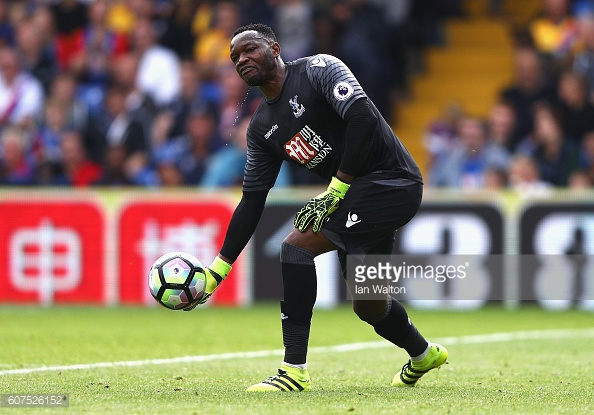Liverpool provide Crystal Palace’s toughest test so far this season when they visit Selhurst Park tomorrow evening.
The Reds are currently joint-top of the Premier League with Manchester City and Arsenal and have also scored the joint-highest amount of goals – level on 20 with the Citizens.
In contrast, the Eagles have flattered to deceive defensively. Twelve goals have been leaked, including four in their last two games, and they are without a clean sheet in 14 consecutive top-flight games – with just two in their last 29.
Palace boss Alan Pardew admitted in his pre-match press conference that his side’s clean sheet record is “a worry”. However, he also insisted that his side must start to hit the back of the net more regularly having seen his side have 23 shots against Leicester City last weekend, despite scoring just the once in the 3-1 defeat.
How do Liverpool play?
Jurgen Klopp’s side are renowned for their high-energy attacking football. The German has earned a reputation for ensuring his side win the ball higher up the pitch using a method called ‘Gegenpressing’, effectively translating into ‘counter-pressing’.
Counter-pressing is a proactive style of pressing that requires players to press high up the pitch and mark potential passing options in anticipation for when they receive the ball. Traditional pressing is often confused with counter-pressing but there are several differences, none more so than the fact traditional pressing is much more reactionary.
When Liverpool are in possession, they tend to move the ball forward very quickly. The usual front three that consists of Philippe Coutinho, Roberto Firmino and Sadio Mane are very mobile and move into different spaces, which makes them very difficult to mark. Firmino is not a natural centre forward and often drops deep to receive the ball which leaves space in behind for either a wide player or a midfielder, usually Adam Lallana, to exploit.
Liverpool’s counter-pressing could cause Palace several problems. Pardew has adopted a style that involves the ball being passed out from the back which will suit Liverpool because they will try to cause panic and eventual mistakes. Against Leicester last weekend, Steve Mandanda almost cost his side an early goal when he passed straight to Shinji Okazaki, who lofted his shot over the crossbar from 30 yards. The Eagles’ passes might need to be slightly more direct than they have been recently if they are to be certain that they will not be caught out by the Liverpool press.

How will Palace need to defend?
It is likely that the Eagles will continue to adopt the three-man midfield that has had differentiating success in recent weeks. Wales international Joe Ledley will play a deep midfield role and his aim will be to prevent Firmino dropping deep and receiving the ball between Palace’s midfield and back four.
Scott Dann’s return will be a boost for Palace and he will partner James Tomkins in central defence. It will be important that neither centre-back follows Firmino too far away from goal as it could leave space exposed for another Liverpool player to exploit. The back four will need to keep its shape and possible defend quite narrow, like how Manchester United coped with the Reds at Anfield two weeks ago.
Jose Mourinho made sure his back four were no wider than the width of the 18-yard box and had his wingers dropped back to effectively create a six-man defence. This was effective because Liverpool’s wide players, Coutinho and Mane, usually enjoy moving inside but there was simply no room for them to do so.
What are Liverpool’s weaknesses?
Pardew highlighted defending set-pieces as the Reds’ weakness and Palace will certainly need to make the most of dead-ball situations.
Dann’s return will increase the Eagles’ chances of scoring given his aerial prowess, although Jason Puncheon’s injury means Pardew will be without his best set-piece taker. Yohan Cabaye, however, is just as adept from these situations.
Former Liverpool striker Christian Benteke will also be a threat to his former side, particularly due to his ability to win headers inside the opposition’s penalty area. All three of his goals for Palace this season have come with his head, although he is yet to score a home goal for his new club. The Belgium international caused controversy in this fixture last season when Pardew accused him of diving to win – and score – a 96th minute penalty. The Palace boss will hope he will have a similar affect this time around.
Benteke has suffered from a spell of poor form since his hat-trick for Belgium during this month's international break. The Eagles' midfield has struggled to support him and either Cabaye or James McArthur will need to get closer to the striker if direct passes into his feet are going to have any effect.









































